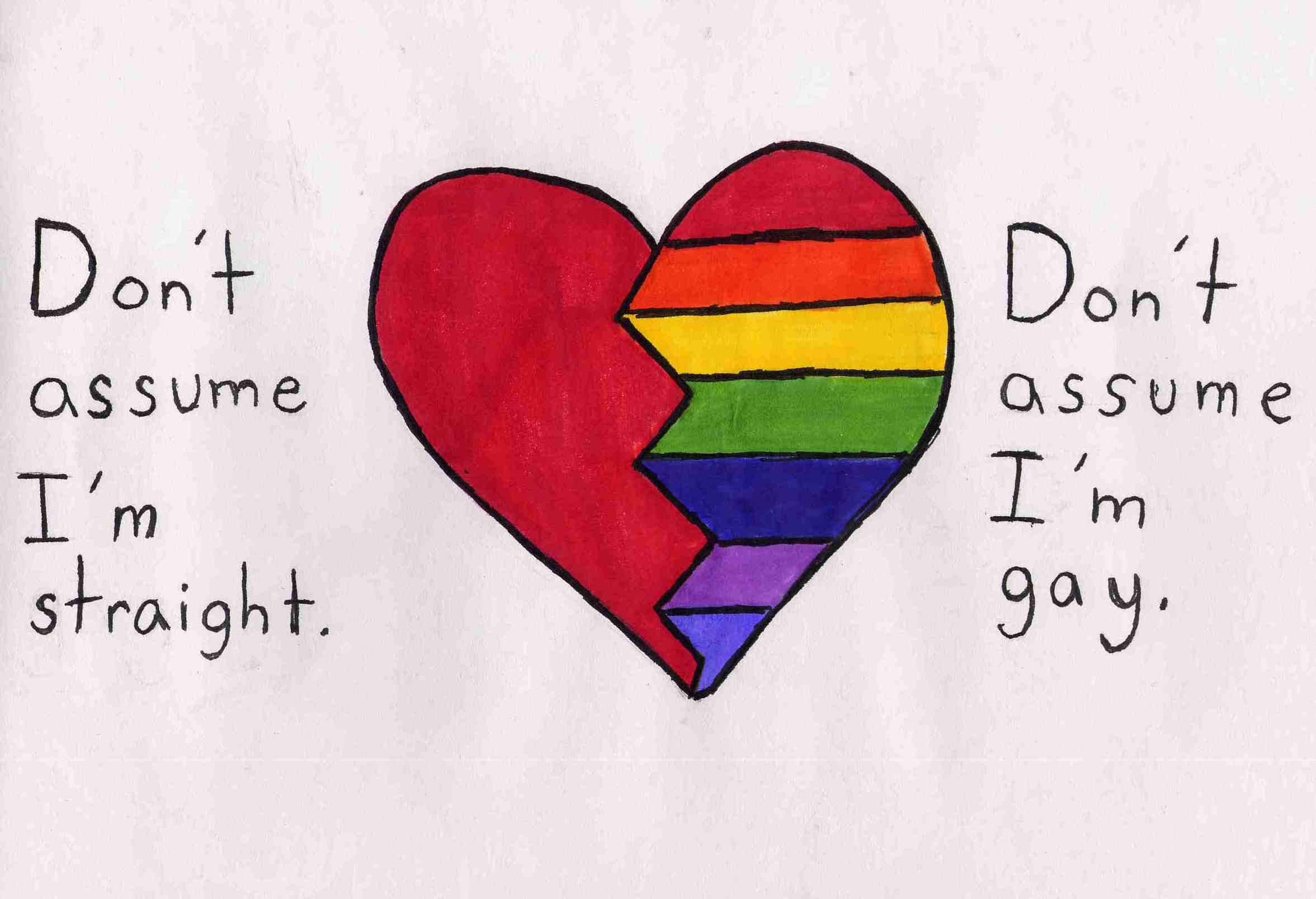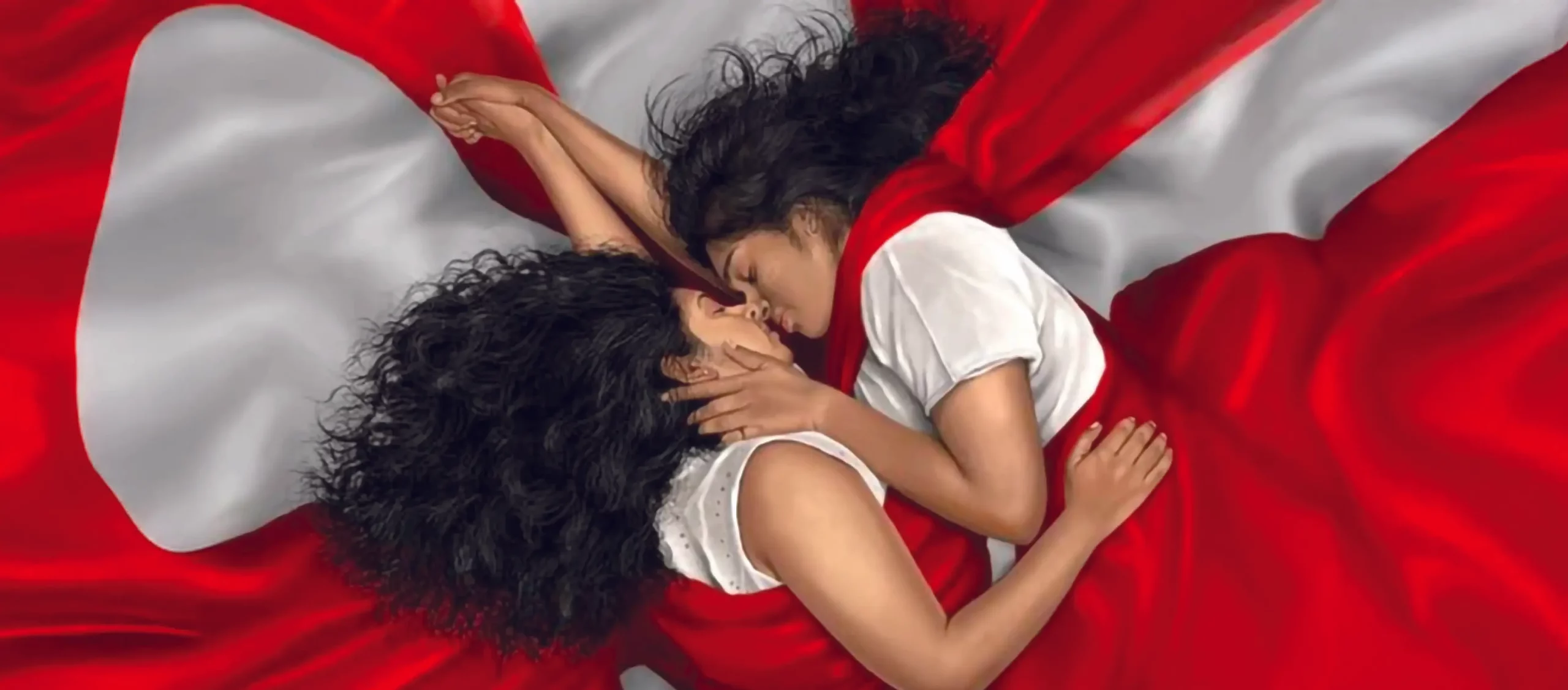Editor’s Note: This month, that is September 2020, FII’s #MoodOfTheMonth is Boys, Men and Masculinities, where we invite various articles to highlight the different experiences of masculinity that manifest themselves in our everyday lives and have either challenged, subverted or even perpetuated traditional forms of ‘manliness’. If you’d like to share your article, email us at pragya@feminisminindia.com.
Posted by Snigdha Bansal
It’s bisexuality awareness week, and as accounts of bisexual men suggest, we surely do need more awareness about it in India. Ask any bisexual man and they will tell you the bizzarre interactions they’ve had to be part of. There are certain common reactions that occur when people come to know of their sexuality, ranging from dismissal to disbelief to even disgust.
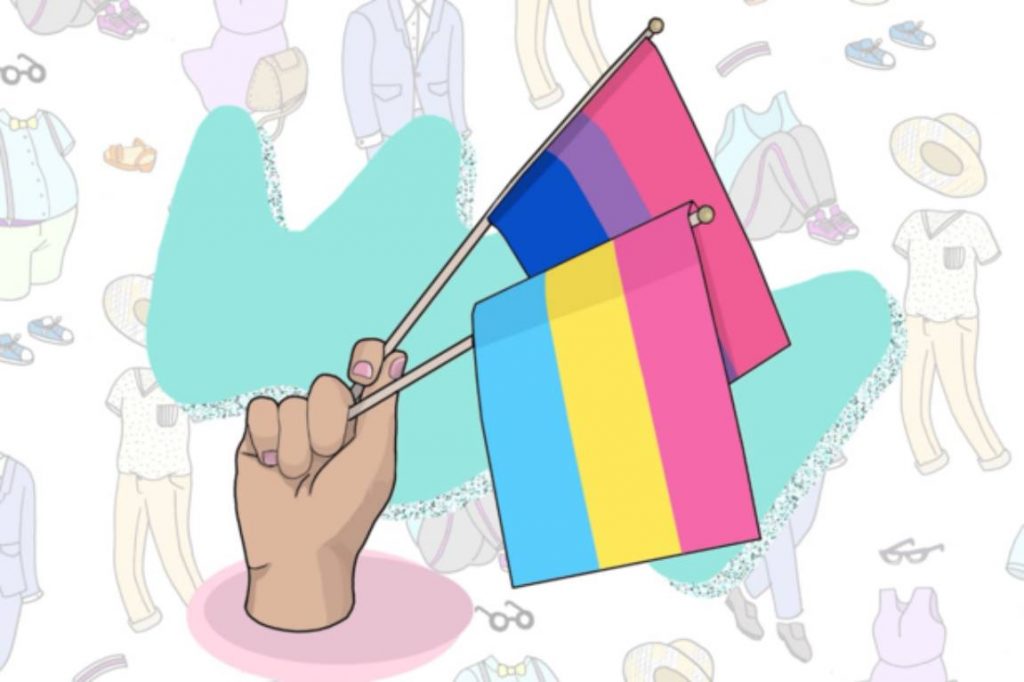
Manan Kacheria, a 24-year-old student and former financial analyst, shares, “I’ve had friends try to force me to make out with another guy by pushing our heads together, assuming that I should be okay with it because I’m bisexual.“
“In University, I told a very close friend that I was finally comfortable with sharing the fact that I’m attracted to men. She said that she loved me and was very happy for me. However, she also felt the need to tell me that as a Catholic, it did not align with her beliefs and that she did not encourage it,” says Sadiq (name changed), a 24-year-old mechanical engineering student. ,
While there is widespread stigma and ignorance among heterosexual people who often fail to understand what bisexuality means, what’s shocking is that negative attitudes towards bisexual people also exist within the queer community.
Shibanshu Mukhopadhyay, 27-year-old student and startup founder, had to deal with biphobia from men he was interested in, with queer men refusing to meet him because they didn’t ‘trust’ bisexual people. The most emotional instance was when someone, he had been seeing for two months, backed out of a more serious relationship simply owing to his bisexuality.
“That was the most intimate form of biphobia I have faced, it was very strange. Because I faced so much biphobia, it also made me uncomfortable with my own identity, because I felt like there was this wrong notion of bisexuality that I had to prove wrong,” he says.
Ask any bisexual man and they will tell you the bizzarre interactions they’ve had to be part of. There are certain common reactions that occur when people come to know of their sexuality, ranging from dismissal to disbelief to even disgust.
But not only is the community rife with biphobia, bisexual erasure is also a major issue bisexual men often have to deal with. Bisexual erasure means the tendency to ignore or cover up evidence of bisexuality in the society, sometimes going so far as to suggest that bisexuality isn’t even a ‘thing’.
Sadiq talks about the time he was catching up with an Internet friend, who was gay, and the friend asked him if he was “still bi.”
“He treated being bisexual as a stepping stone to eventually becoming gay… and when queer people perpetuate these stereotypes, straight people also believe it’s okay to say these things because ‘the gays’ say it,” he says, emphasising that the queer community might also have a hand in the unfair societal perception of bisexuality.
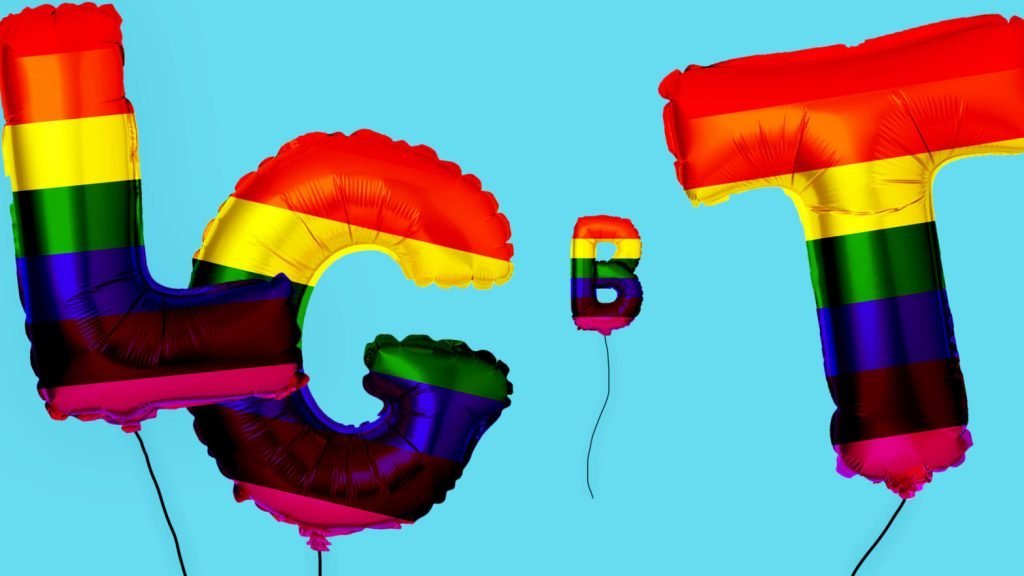
So what does the society really think of bisexuality, if at all?
According to Aayush, a 21-year-old graduate student, the concept of sexuality is introduced to us in two extremes—heterosexuality and homosexuality. The idea that there is a spectrum between the two is very nascent and so, people have a hard time understanding it.
“That is why bisexuality is often treated as a phase where you’re just exploring,” he says.
There is also a noticeable discrepancy in how bisexuality is perceived when it comes to men and women. There is a broad consensus on the fact that both mainstream media and society, in general, sexualise and fetishise bisexual women. Perhaps because of this, there is also greater acceptance, problematic as it may be, of bisexuality in women than in men. On the other hand, bisexual men might be invalidated and perceived as “gay men in the closet” or simply “confused.”
“At the end of the day, neither women nor men have it easier when it comes to being bi, because fetishisation cannot be considered to be acceptance in the true sense, especially when it’s just for cishet men to derive pleasure from,” says Aayush.
“He treated being bisexual as a stepping stone to eventually becoming gay… and when queer people perpetuate these stereotypes, straight people also believe it’s okay to say these things because ‘the gays’ say it,” he says, emphasising that the queer community might also have a hand in the unfair societal perception of bisexuality.
The constant invalidation, the ignorance, and having to struggle for your identity can be tough on anyone. Especially in matters of sexuality, one often goes through a long process of self-discovery, and having to then face the stigma attached to bisexuality can have a serious impact on your mental health and make you question your own identity.
“When our families say it’s wrong and that it’s a problem, we internalise some of that. For a large part of my life, I thought I was wrong and immoral,” says Kacheria.
Also read: My Experience Of Living As A Bisexual Woman In India
Sadiq echoes that sentiment, having dealt with a partner who couldn’t come to terms with their sexuality.
“Despite being surrounded by the most supportive people, I went through a tough time. His struggle to grasp his own sexuality was so difficult that he kept swinging between stages of denial, release of pent up emotions, and complete silence. This frustrated me and made me wonder if I was being too liberal and needed to restrain my sexuality as well.”
When men are laden with unrealistic expectations of who they must be, their inability to conform to those standards can go on to have lasting effects not just for them, but for others around them as well.
“Ultimately, patriarchal norms guide our perception of bisexuality and men are stigmatised because they defy the traditional ideas of masculinity and continuing the bloodline,” Aayush says.
When these deep-rooted ideas are so hard to unlearn and require a systemic change, what can individuals do to make things better?
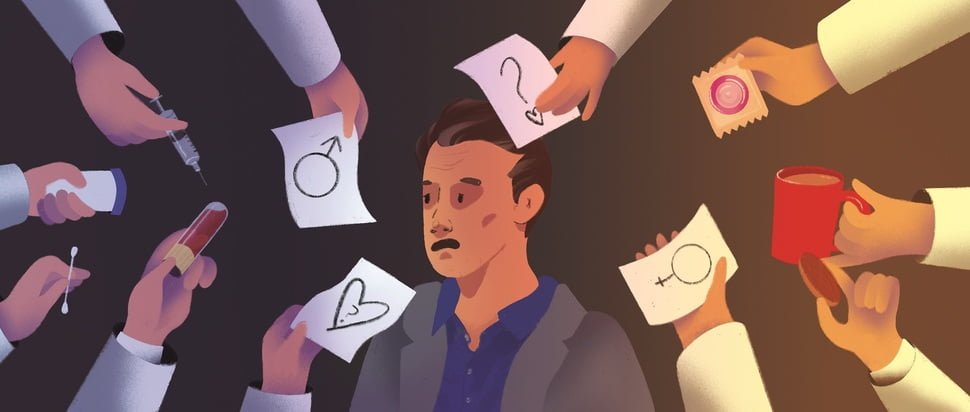
Sadiq thinks he probably should’ve gone to therapy. At this point, there are several queer-affirmative professionals in India who offer their services to queer and non-binary people struggling with their identity. On a larger level, Aayush believes it is important to keep having inclusive conversations that put the real narrative out there about how bisexuality works. Talking and creating discourse enriched by real people’s experiences is the way to go forward.
Also read: No, Bisexual People Do Not Have To ‘Pick A Side’
And as awareness about bisexuality increases, bisexual men also grow more comfortable with asserting their identity. Sadiq says, “My bar is high now; just casual acceptance doesn’t cut it anymore, I demand respect.“
Snigdha Bansal handles the creative department at You’re Wonderful Project;, which is an NGO working to raise awareness on mental health, encourage acceptance of mental health difficulties, promote prevention and facilitate intervention.
Featured Image Source: Gaysi
About the author(s)
Started in 2015 with the underlying philosophy that every person deserves to know ‘they’re wonderful’, You’re Wonderful Project; is an organisation that is comprehensively tackling the issues concerning mental health. We work to raise awareness, encourage acceptance of mental health difficulties, promote prevention and facilitate intervention. On-ground, we make this happen through a strong, research-oriented course of action. Our range of events, campaigns and workshops all focus on the betterment of our community. We have a strong online presence, and we use that to raise awareness and provide peer support on forums such as Facebook, Instagram, and Twitter.
